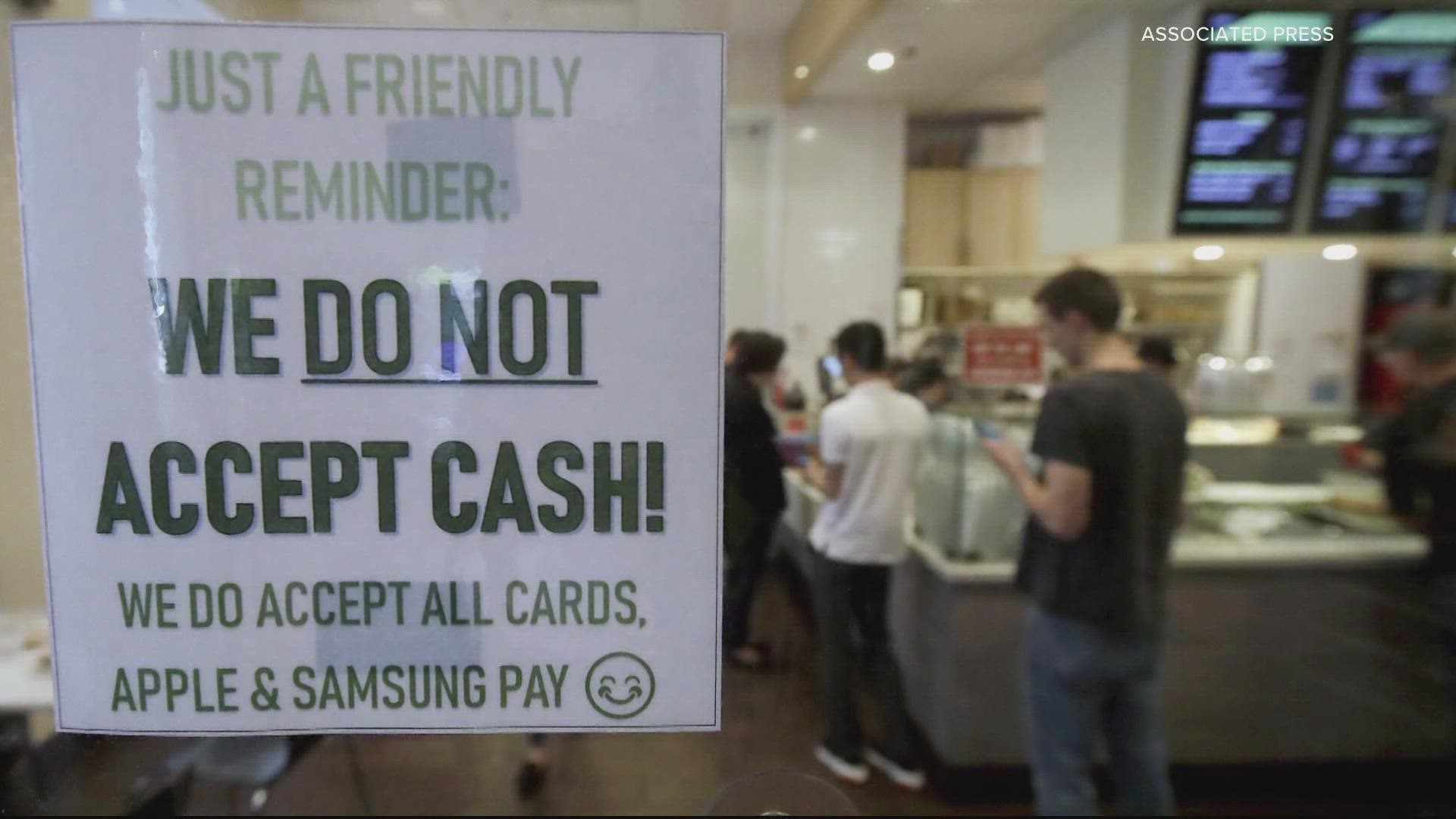WASHINGTON — Cash or card? You might find at some stores and restaurants, the question isn’t even asked – but in some places, it’s illegal to discriminate against certain forms of payment.
THE QUESTION:
Is there a federal law requiring businesses to accept cash?
THE SOURCES:
THE ANSWER:
No, but some localities might have their own rules.
WHAT WE FOUND:
They say “cash is king…” but this is America, where we play by different rules. Recently a VERIFY viewer asked about what's allowed.
Section 31 U.S.C. 5103, on "Legal tender," states: "United States coins and currency [including Federal Reserve notes and circulating notes of Federal Reserve Banks and national banks] are legal tender for all debts, public charges, taxes, and dues."
However, there’s no federal statute requiring a private business, person, or organization accept cash or coins to pay for goods or services.
On its website, the Federal Reserve says that means these private entities are free to develop their own policies, like only accepting card payments, unless there’s a state or local law that says otherwise.
And more localities are adopting these types of laws, which advocates say can benefit people without credit cards or bank accounts.
In the District, the council passed DC Law 23-187, the “Cashless Retailers Prohibition Amendment Act,” which makes it illegal for a retailer to “discriminate against cash.”
That means refusing cash, charging a higher price for cash-paying customers, and even posting signs on the premises that say a cash payment isn’t accepted.
However, businesses have increasingly been going cashless during the ongoing pandemic, often citing hygiene concerns, and DC’s law allows for an exception to this rule during public health emergencies.

